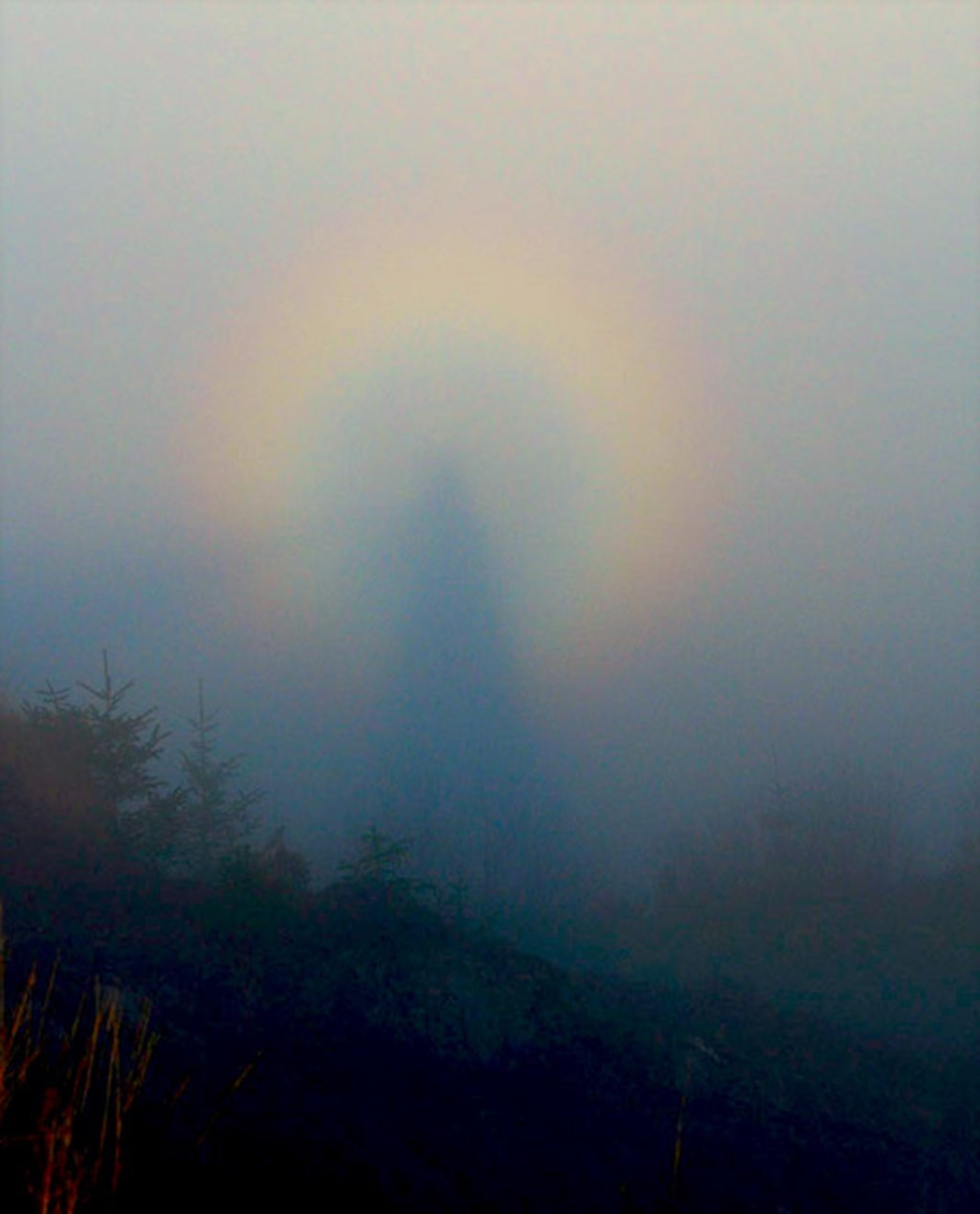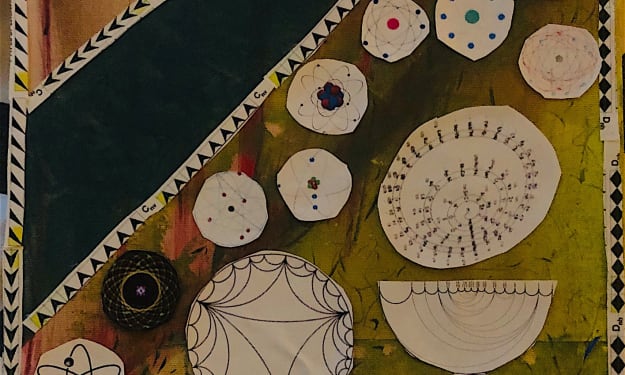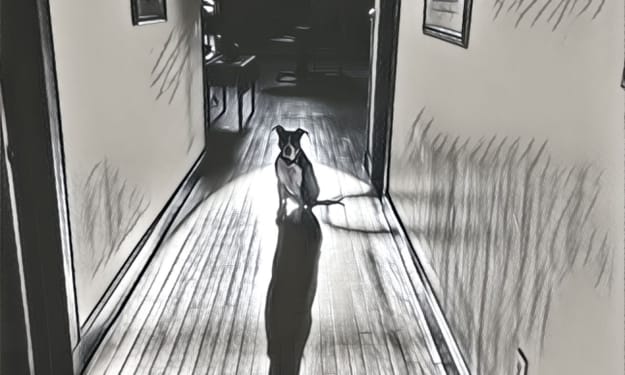Nova fluctus unda vox libertatis: Fluctuations in the new vague of the voice of freedom
Meanderings about freedom

Yet another war has begun. The situation in the Ukraine brings the spectre of dread and caution. I feel fear. I was born ten years after the Second World War ended. I remember that, as a child, that war sounded like it happened a long time ago and I was surprised people still talked about it. With age, ten years passes in the blink of an eye and I have learned about the vast devastation that is associated with war.
I must admit, I am like an ostrich who puts its head in the sand and choose to remain ignorant about much of history and politics. I can never understand the all sides of the story. However, having been a youngster during the Cold War, I learned what fear felt like. During the Vietnam War, I started to become aware that draft dodgers opposed going into a conflict, that to this day, I have not understood. Watching Mash I realized mangled bodies and minds are part of wars that are fought to defend freedom that is often associated individual rights that are often both violated and protected because of land, resources or strategic positioning.
In order to try to understand freedom I look to statistics. Approximately 75% of the global population is deemed to be free according to the US State department funded 'Freedom House'. Freedom does not necessitate democracy. Geographically, the land mass of democratic countries in North America, Europe and many other countries, equals that of countries governed by authoritarian, oligarchical or hereditary aristocracy.
I have only known the democratic system that has come to be defined as rights of fundamental freedoms that include freedom of speech, public gatherings, voting and marriage regardless of religion and recently, gender. The definition of freedom is fluid. Modern, original innovations often overturn traditional concepts over time, to optimize the balance between potential and reality, as judgement and tradition change with societal global awareness.
The Fourteenth amendment of the US declaration of Independence was designed to limit what the Founders considered the dangers of too much democracy. In the democratic free world, global realities often hold the ‘island effect’ where a population has random philosophical, psychological and morphological shifts that form strongly polar views. Such views are only suppressed when they are deemed terrorism that threatens the basic rights of freedom to others. The opposite of democracy is Autocracy. It often imposes more limits to individual freedoms.
I look to what I know of life to understand freedom. When human life starts, the embryo is enslaved in the confines of the uterus, dependent on a transcendent world where time is fluid. With a primal yelp that cuts the air, followed by a set of higher pitched shuddering breaths, the child attached to a dangling cord, leaves this warm safe world and is placed on the mothers chest. It is weaned from materials provided by the mother and begins to adapt to what is provided. It learns to test the limits of a physical body and mind as it deals with the environment, social customs, pain and wounds that are part of life. Through experiences, myths and story-telling traditions, the child is educated. The child learns from what is known or imagined of past lives of different cultures and time periods. As they grow and become independent, they define freedom by what is seen in the mind's eye, that flows through one's own heart centre and connects to the gut that in turn aligns with the mind, and leads to action.
Definitions of freedom are altered by experiences and abilities. In the animal world, resource acquisition often depends on inter and intra-specific competition, offering the dominant aggressor an advantage. The aggressions of human wars are often driven by underlying economic costs and benefits. A individual freedom is linked to obtaining resources as a member of a community, country, or the world.Freedom often becomes confused with capitalism, that plays on the division between wants and needs.
Material goods are often associated with freedom. Marketing strategies, are intended to manipulate the masses, by associating emotions to taking action, so that a concept or object can provide some aspect of freedom. Humans are animals, with extra neurons in the associative regions that increase reasoning powers. Propaganda is a form of marketing that can flame the hearts of the people by creating a desire that can entice individuals to willingly become a slave to an ideal.
Such a willingness to become a slave differs from historical figures such as Moses, who championed the exodus of Egyptian slaves to freedom around 1400 BC. Moses established rules and wrote the laws intended to protect and defend the freedom of the freed slaves. These laws, that were associated with a divine force, influenced ancient Greece. Around 400 BC, Pericles argued freedom is not having any choice. Socrates described freedom from want, not because of accumulated possessions but because of self-mastery. Plato said freedom holds craftiness that can use chance opportunities when and if they occur. Aristotle defined two aspects of freedom,moral and political. Politics is a branch of ethics in which the morality of individuals, organized groups and communities, do what should be done.He did not specify why, what or how to live as one wishes and to rule and be ruled. Stoics said freedom is found in giving, receiving and returning benefits.
I have tried to read translations of Machiavelli, who wrote during the Renaissance. Machiavelli imagined a demoralized world, with politics separate from ethics. He had no ideal republics or imaginary Utopias. In 'The Prince', Machiavelli suggests to the Medici's, that an apparently trust-worthy, wise dictator was an orator who could direct the populace how to perceive the world through manipulations and machinations. Stating 'it is easier to be feared than to be loved' Machiavelli argued that most people do not want freedom, or to control others, but liberty, governed by laws that provide security. He suggested individual freedom holds some independence through free will, but suggested a Republic could have a long and stable rule, as did Romans and Spartans, through military training that could unite the Republic in the face of any imaginary danger.
I have superficially gleaned that Marx and Engels suggest freedom depends on relations with other people. Both the oppressor, who is prisoner to anger and the oppressed, who have lost their confidence in humanity, need freedom. Marx says ‘religion is the sigh of the oppressed creature, the sentiment of a heartless world and the soul of soulless conditions. It is the opium of the people.’ Marx argued that laws to defend ideologies such as religion and philosophy, depend on economic conditions of class and suggested that instead, laws should be applied by the conscious rational animal, and social forces should control the collective salvation of humanity and the environment.
Carl Jung suggested that the feeling of freedom is limited by consciousness. He recognized that freedom allows non-predictability. He also said the dark aspects of what a person dislikes, rejects, ignores, or denies, is often a reflection of a part of them self that is rejected
At this juncture, I want to let my free thought examine this dark self, caused by mistakes, anger, ignorance, suffering or any negative sense. I once such darkness manifested on the hills of Scotland. The low setting sun sent streams of light through a fog. The mists acted as a prism that forms a complete elliptic rainbow. It is called a glory. Within the glory, I saw a shadow puppet appear. Hidden details of perfection and ideals disappeared in a vague haze.
The spirit of darkness was magnified greater than real life on the highest peak on the horizon. It was the big-footed Grey blind Spectre of Brocken that was not restricted to the hell of the deep or lower unconscious world of toxic beliefs but free to move between worlds that join the living and nonliving. I could not see through the blind eyes of the skull, but only saw my general form in the shadow that held hidden knowledge.
The Brocken are spoken of in Mephistopheles by Goethe, where the witches meet on mountains to revel with demon gods on Walpurgis night April 30th. Shakespeare describes the three witches in Macbeth, who on this night address logic reversal in their speech fair is foul and foul is fair.' What seems good or bad is not always so.
The Norse myths say the Freya the goddess of love, fertility war and strife, married Wotan on the Brocken. Freya, the leader of the Nordic Norns and Valkyrie warrior maiden prophetesses, ruled the fates of humans and took the souls of warriors to Valhalla, Odin’s hall or brought lovers together after death in the realm of the great and fair Folkvangr hall.
Freya stole a piece of gold from her husband Odin, the Wild Huntsman, and God of the dead. Dwarves made into a marvellous jewelled torc, the Brisingamen necklace, that reflected the beauty of the wearer. Freya's heart, full of love for a most hideous dwarf, a creature who had known only horror and disgust, resulted in the dwarf protecting Freya who was the perpetrator of the crime, at a cost to himself.
In Greek myth, the Necklace of Harmonia was wrought of gold with a clasp formed by the open mouths of two serpents representing Harmonia and her husband Cadmus. The necklace allowed any woman wearing it to remain eternally young and beautiful, but brought great misfortune to all of its wearers. The fiery golden glowing necklace was possessed by Beowulf, who died by the bite of a dragon.
Necklaces are often put on slaves to keep them from running away. Perhaps humans are doomed as slaves who carry the necklace of entwined serpents organized as pieces of DNA that transmit genetic traits, and are found in the epigenetic memories from past lives found in female mitochondrial DNA. Or perhaps they can choose to be slaves to what they choose to pursue.
The Spectre of Brocken holds the distorted shadow of darkness, that passes in waves of the electromagnetic field. It is rarely seen and cannot be controlled, but there is freedom in understanding the conditions in which it arises. Individuals are free to ignore knowledge, but knowledge is used to challenge and defend freedom. Acquiring knowledge and developing skills, and tools, might help release or reduce the generational curses and psychological shackles of freedom that are related to the aspects a single life. An individual who is able to use freedom to see the darkness, may like the Spectre, successfully acquire sufficient resources to provide the glow of self-esteem and restore wholeness without hurting others.
To follow a vision quest to defend freedom requires artists, who are called to do deep holy acts. They must heal running faulty scripts of wounded ideals that replay with the same negative consequences. True freedom allows each person to define what freedom means in their own life. Limits of freedom require that an individual accept responsibility for their actions and upholds respect for the relation with one self and other inhabitants of the living and non-living world. Such limits might help humanity face the dark threats and deal with the forces to support freedom.
About the Creator
Katherine D. Graham
My stories are intended to teach facts, supported by science as we know it. Science often reflects myths. Both can help survival in an ever-changing world.






Comments
There are no comments for this story
Be the first to respond and start the conversation.